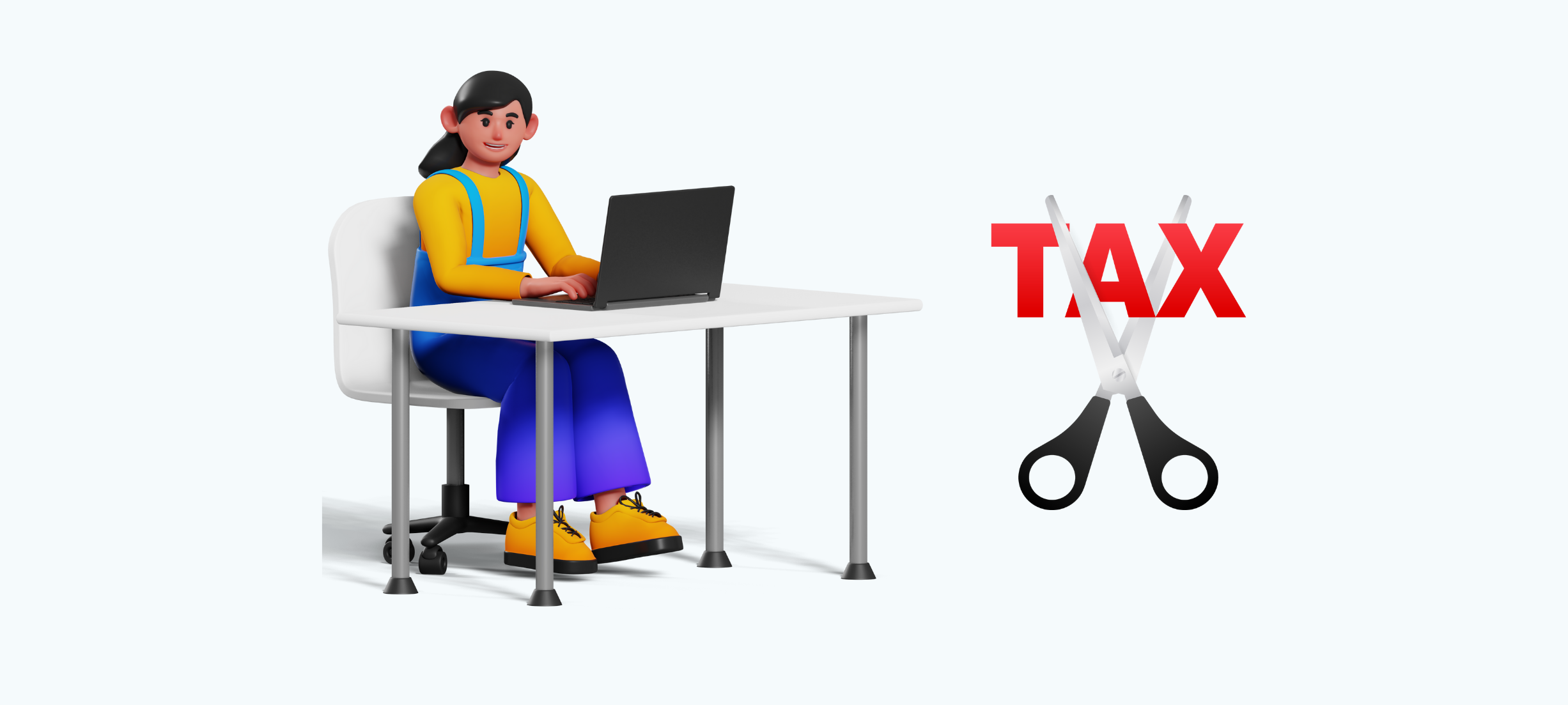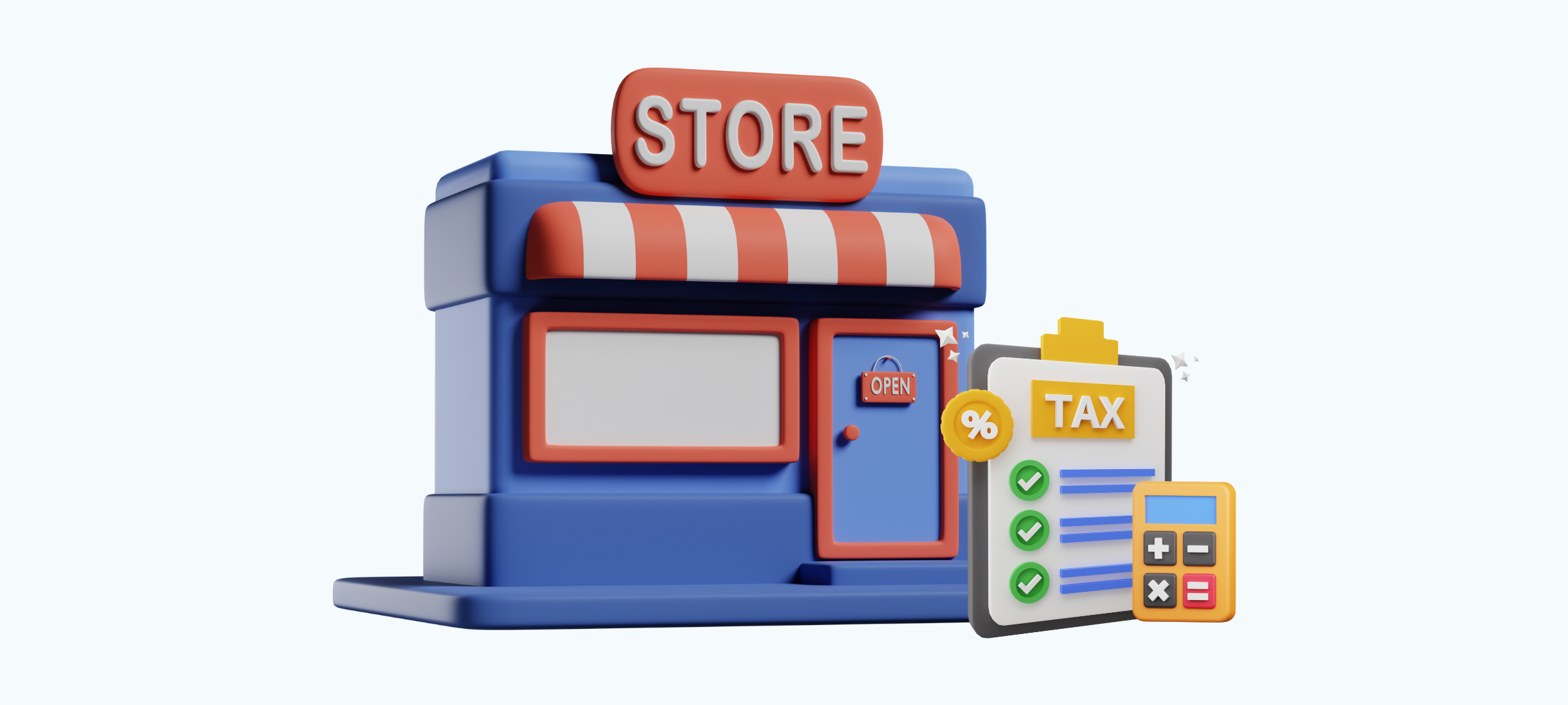
Tax season can be a bit tricky and confusing for business and shop owners. The reason is that many don't know about certain deductions they can use, and even if they've heard of them, they might not understand how they work. While making money and sales is essential for shop owners, they should also pay attention to tax deductions. Why? Because these deductions can help them save money by reducing the amount of tax they have to pay. It's like a little reward for their hard work!
So, it's not just about saving on taxes; it's also about making their money work better for them in the long term. Now, you might be wondering, what exactly are these deductions that shop owners can take advantage of? This is where the expertise of a small business accountant becomes invaluable. By collaborating with a knowledgeable accountant, shop owners can navigate through the intricate landscape of tax deductions, ensuring they invest wisely and get the most out of their money, all while enjoying the added bonus of significant tax savings.
The cost of goods sold (COGS) refers to the direct costs associated with producing or purchasing the goods you sell. This includes the cost of raw materials, labor directly involved in production, and any other costs directly tied to the creation of the products you offer.
The formula for calculating COGS is straightforward:
COGS = (Opening Inventory) +(Purchases)− (Closing Inventory) COGS= (Opening Inventory) +(Purchases)− (Closing Inventory)
This formula accounts for the materials and goods you had at the beginning of a specified period, adds new purchases, and then subtracts the value of remaining inventory at the end of that period.
To run a business or a shop, you must have the right papers and permissions. The cool part is, you can save money on taxes for these things. Here's what you need:
Licenses: These are like special permissions to run your business. It could be for selling alcohol, being a professional, running a business in general, and more.
Permits: These are official papers from the government that say you're allowed to do certain things. For example, you might need a resale permit to sell certain items. Or you might need a permit to sell specific goods. All these papers can help you save money when it's tax time.
To keep your business going nowadays, you'll probably have to spend money on different services and subscriptions. The good news is, you can get a break on your taxes for these. Here's a list of the services you can include:
When you spend money to make your shop look nice or improve it, guess what? You might get some of that money back when it's tax time. Here's what you can include:
Just make sure to keep a record of these expenses to make things easier when it's time to do your taxes.
When it comes to the money stuff for your business, there's a cool thing: you can save on taxes for certain fees. Here's what you can count:
Remember to keep track of these fees, and it might make tax time a bit easier on your wallet!
Let's talk about travel expenses – the money you spend when you're on the go for your business. Here's what you can include for tax deductions:
Because of COVID-19, many regular shops started delivering things to people's homes or letting them pick up stuff. The money spent on these things is considered important and normal according to the tax rules, so you can lower your taxes. Here's what you can include:
Sending stuff: If you're mailing things or using delivery services, the money you spend on postage and delivery fees can be part of your tax deductions.
Shipping costs: Any expenses related to shipping or charges for getting things delivered can also help you save on taxes.
Packing stuff: The money you spend on packing and organizing things for delivery, like boxes, envelopes, bubble wrap, packaging tape, and labels, can be counted as well.
Have you spent any amount on your advertising and promotion? For any ad spend or marketing spends, you can claim a tax deduction on expenses such as:
If you bought things like machines or tools for your shop, you can save money on taxes! Also, if you're renting stuff for your shop, the money you pay for that can be deducted too.
Now, here's the trick: Depending on how much the things cost, you can either show the full expense in the year you bought them or spread it out over a few years. This spreading-out thing is called 'depreciation,'.
For example, let's say you got a printer for $5000, and you plan to use it for five years. With depreciation, you can say, 'Okay, I'll count $1000 each year for the printer.' It's like a way to show how much the thing is wearing out over time.
Now, there are rules about how to do this, and it can get a bit tricky. So, it's a good idea to talk to your accountant or advisor to figure out the best way to do this for your business.
Having insurance for your shop is not just a good idea – it's required by law to make sure accidents or damages are taken care of. The good news is that the money you spend on insurance can be taken off your taxes. Here's what you can include:
If you pay someone who's not a regular employee for their advice or services, it's called a professional fee. This covers:
If your shop has people working for it, like employees, you can deduct the money you pay them from your taxes. This includes their regular pay, any extra bonuses, commissions, or other payments. But, there are some rules:
This deduction is for regular employees, not for partners, LLC members, owners, or freelancers. They're in a different category.
However, if your shop provides benefits to employees, like help with education, care, life insurance, health insurance, or retirement plans, you can also count those for deductions. You can report these on a form called 1040 when you do your taxes.
If you own a small business or a shop and want to save money on your taxes, here's what you do:
In the blog above, we've outlined key tax deductions that shop owners can leverage to optimize their finances. Each deduction comes with considerations, and it's advisable to consult with a CPA or tax advisor to ensure eligibility and maximize the benefits. Additionally, the blog emphasizes the importance of exploring various tax-saving options based on specific business requirements. Making informed financial decisions is crucial, and seeking professional advice contributes to effective tax planning.
Now, to further enhance your financial management, consider the services of BookkeeperLive. As a dedicated outsourcing company, BookkeeperLive specializes in providing comprehensive accounting and bookkeeping services tailored to the unique needs of your business. Navigating the financial landscape becomes more accessible with our experienced team, committed to simplifying your financial processes. Take advantage of our free trial to experience the benefits firsthand before making a commitment. Whether you're seeking assistance with tax deductions or overall financial clarity, BookkeeperLive is here to support your business.
Q: Are shop owners eligible for the Section 179 deduction?
Yes, Section 179 allows businesses to deduct the full cost of qualifying equipment and property purchases in the year they are placed in service, rather than depreciating them over time.
Q: How can shop owners deduct expenses for home office use?
If a portion of your home is used exclusively for business, you may be eligible for a home office deduction. This can include a percentage of your mortgage or rent, utilities, and maintenance costs.
Q: Are expenses related to employee benefits deductible for shop owners?
Yes, contributions to employee benefit plans, such as health insurance and retirement plans, are generally tax-deductible for businesses.
Q: Can shop owners deduct expenses for continuing education and training?
Yes, costs associated with maintaining and improving skills relevant to your business, including workshops, seminars, and training programs, are usually deductible.
Q: Can shop owners carry forward unused deductions to future years?
In some cases, if the total deductions exceed the business's income, the excess may be carried forward to offset income in future years. Consult with a tax professional to understand the specific rules and limitations.
BookkeeperLive provides affordable bookkeeping and accounting services tailored to your business goals.





No calls, No meetings, No spam. Get started with a free trial by filling out the form.
*NDA included for your data protection.
Copyright © 2025 BookkeeperLive. All rights reserved. Privacy Policy Terms of Use
Please visit our India site to see services designed for your country
Enter the code, fill out the form, and unlock financial clarity with a free trial.